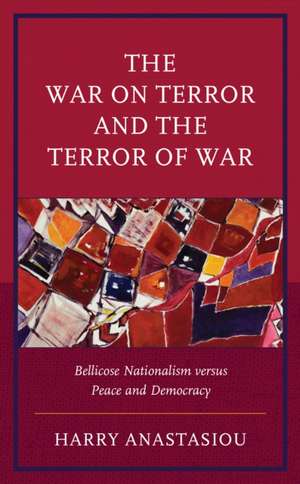Anastasiou, H: War on Terror and Terror of War
Autor Harry Anastasiouen Limba Engleză Hardback – 10 apr 2023
Preț: 595.74 lei
Preț vechi: 773.68 lei
-23% Nou
114.01€ • 120.57$ • 95.10£
Carte tipărită la comandă
Livrare economică 30 decembrie 24 - 13 ianuarie 25
Specificații
ISBN-10: 1666915491
Pagini: 270
Ilustrații: Illustrations, unspecified; Tables
Dimensiuni: 157 x 235 x 21 mm
Greutate: 0.57 kg
Editura: Lexington Books
Notă biografică
Harry Anastasiou is professor of International Peace and Conflict Studies at Portland University.
Descriere
In this book , the author explains previously unaddressed historical outcomes resulting from the combined impact of the September 11, 2001 attacks and the United States' subsequent Global War on Terror. While expounding on the finer details of the decades-long interaction between militant jihadism and the Global War on Terror, the analysis explores two contrasting narratives: bellicose nationalism and movements of peace and democracy. As central drivers in the historical evolution of America, their contrasting influences shaped policy, political culture and strategic approaches in both the domestic and international arenas.
Throughout the post-9/11 era, mainstream America underwent significant cultural and political shifts away from the narrative of peace and democracy as it tilted towards bellicose nationalism. Focusing primarily on the presidency of George W. Bush, the book explores how nationalism harmed the rule of law, human rights and democracy, both domestically and internationally.
Viewing war as an institution , rather than as a means to promote democracy, the author conducts a reality-based demythologization of war, demonstrating how costly and counterproductive it has been. In this light, he questions the historical efficacy of war as well as the way nationalism both generate and glorifies war.
